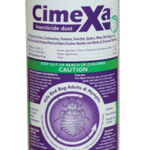Understanding Gerbil Lifespans: Practical Care Strategies for Longer, Healthier Pet Lives

Introduction
Gerbils have become increasingly popular as pets due to their engaging personalities and manageable care requirements. Prospective and current owners often wonder, how long do gerbils live as pets? This article delivers an in-depth look at gerbil lifespans, covering the major influences on longevity, real-world examples, and evidence-based care strategies to help your pet gerbil live a full and healthy life.

Source: pinterest.co.kr
Average Gerbil Lifespans
Most pet gerbils, particularly the Mongolian gerbil (Meriones unguiculatus), typically live between two and four years in captivity. While some may reach five years or more with exemplary care, the majority fall within this range. Various expert sources report slightly different statistics: for example, PetMD notes an average of two to three years , with some gerbils living up to five years or longer depending on their care environment [1] . The Royal Society for the Prevention of Cruelty to Animals (RSPCA) also reports a typical lifespan of three to four years , sometimes longer [2] . Fat-tailed gerbils may live slightly longer, averaging five to eight years [3] .
Key Factors Affecting Gerbil Longevity
To help your gerbil reach the upper end of its lifespan, consider the following influences:
1. Genetics
Gerbils from reputable breeders tend to live longer and healthier lives. Selecting gerbils with strong genetic backgrounds can reduce the risk of inheritable health conditions, such as obstructive ear disease. When acquiring a gerbil, ask the breeder about lineage and any known health issues [1] .
2. Diet and Nutrition
A balanced, species-appropriate diet is crucial. High-quality rodent pellets should constitute the bulk of their nutrition, supplemented by small amounts of fresh vegetables like carrots and leafy greens. Occasional treats (e.g., sunflower seeds) can be offered in moderation. Avoid sugary or fatty foods, which may contribute to obesity and other health issues [4] .
3. Habitat and Environment
Gerbils thrive in clean, spacious habitats. The recommended minimum cage size for a pair of gerbils is 10 gallons, but larger is preferable. Provide safe bedding, tunnels, chew toys, and hiding spots to mimic their natural burrowing instincts. Maintaining the habitat between 65°F and 75°F, away from direct sunlight or drafts, helps minimize stress and disease risk [4] .
4. Social Structure and Enrichment
Gerbils are highly social. Keeping them in pairs or small groups (of the same sex unless breeding is intended) reduces loneliness and behavioral stress. Enrichment-such as running wheels, cardboard tubes, and nesting material-encourages natural behaviors, preventing boredom and promoting mental well-being [2] .
5. Regular Health Checks
Routine veterinary examinations can help identify and treat health issues early. Watch for signs of illness such as lethargy, loss of appetite, abnormal lumps, or respiratory distress. Keeping a close eye on your gerbil’s daily behavior makes it easier to spot potential problems quickly [3] .
Practical Steps to Prolong Gerbil Life
Owners can take several actionable steps to encourage a longer and healthier lifespan for their gerbil:
- Purchase from Reputable Sources: Research breeders or pet stores to ensure animals come from healthy stock. If uncertain, consult local or national rodent associations for recommendations.
- Set Up a Proper Habitat: Choose an enclosure that meets or exceeds the recommended size. Use safe bedding, avoid cedar or pine shavings, and provide plenty of tunnels and hiding places.
- Offer a Balanced Diet: Feed high-quality gerbil pellets daily, supplemented with small amounts of fresh produce. Remove uneaten food promptly to prevent spoilage.
- Maintain Cleanliness: Clean the cage thoroughly once a week, replacing bedding and disinfecting surfaces. Spot-clean soiled areas daily.
- Provide Social Companionship: House at least two gerbils together unless advised otherwise by a veterinarian. Monitor their interactions to prevent fighting.
- Monitor Health Regularly: Schedule annual veterinary checkups. Learn to recognize symptoms of common gerbil ailments and act promptly if issues arise.
- Enrich Their Environment: Rotate toys and introduce new items periodically. Provide nesting materials and opportunities for digging.
Real-World Examples and Case Studies
Gerbil owners report a range of lifespans based on care and genetics. For instance, some forum users suggest that their gerbils typically live two to three years, while others have seen pets reach four or even five years [5] . These anecdotes underscore the importance of attentive care and high-quality breeding.

Source: pinterest.com
Consider the story of a gerbil named Luna, who lived for nearly five years. Luna’s owner prioritized regular veterinary care, a spacious cage, a rich diet, and daily social interaction. Conversely, another gerbil, Max, developed respiratory issues and lived only two years, possibly due to poor ventilation and overcrowding in his habitat. These examples highlight the profound impact of environmental and care factors.
Challenges and Solutions
Gerbil owners may face several challenges in maximizing their pets’ lifespans:
- Health Emergencies: Gerbils are prone to sudden illnesses. Establish a relationship with an exotic animal veterinarian for quick access to care.
- Behavioral Issues: Aggression or stress can shorten lifespan. Provide ample space, monitor group dynamics, and separate individuals if necessary.
- Dietary Imbalances: Overfeeding treats or offering inappropriate foods can cause obesity and metabolic issues. Stick to vet-approved diets and monitor weight regularly.
Alternative Approaches
If you are unable to provide optimal care due to time, space, or budget constraints, consider the following alternatives:
- Adopting Older Gerbils: Rescue organizations sometimes have adult or senior gerbils available. While their remaining lifespan may be shorter, these pets can still provide companionship and joy.
- Partnering with Local Clubs: Many rodent enthusiast groups offer care workshops and resources. Search for “gerbil care club” or “rodent pet association” in your area.
- Utilizing Community Resources: Some animal shelters provide care guides or host educational events. Contact your local shelter for more information.
Accessing Gerbil Care Resources
For comprehensive gerbil care information, consult:
- Veterinarians specializing in small mammals: Search for “exotic animal vet” or “small pet vet” in your city.
- Official animal welfare organizations: The RSPCA provides detailed gerbil care advice and is a trusted source for pet owners [2] .
- Educational websites: PetMD offers a wealth of articles on gerbil health and care [1] .
If you need step-by-step assistance, you can:
- Visit your local library and request books on gerbil care.
- Contact nearby pet stores for recommendations on supplies and breeders.
- Search online for “gerbil vet” or “gerbil care guide” to locate current resources.
- Join online forums such as Gerbil Forum for community-driven advice [5] .
Summary and Key Takeaways
Gerbils, when kept as pets, most commonly live between two and four years , with some reaching five years or more under optimal conditions. Lifespan depends on genetics, diet, environment, and socialization. By following expert-recommended care strategies, monitoring health, and providing a stimulating habitat, you can maximize your gerbil’s chances of thriving. For further guidance, rely on reputable sources, consult qualified veterinarians, and participate in both online and local gerbil communities.






